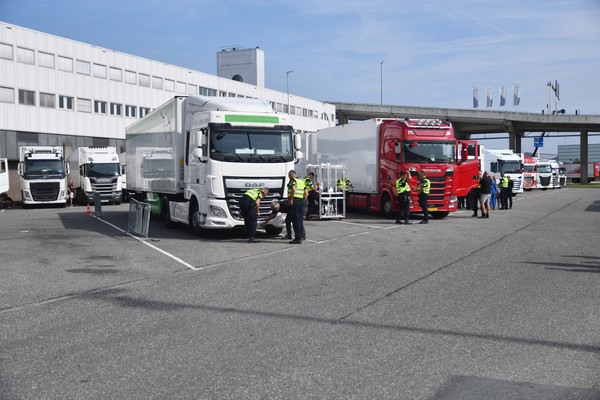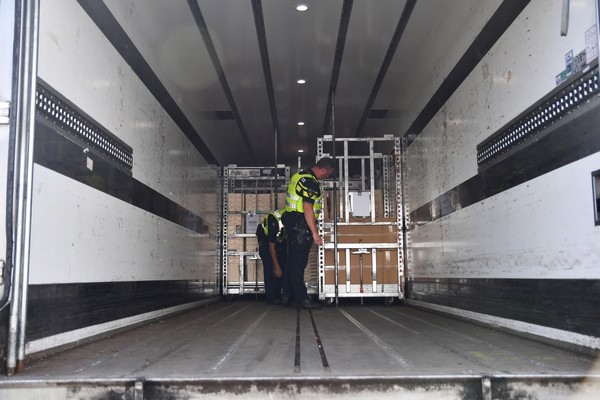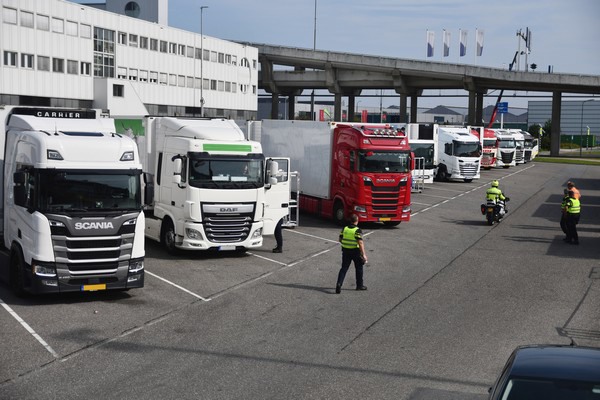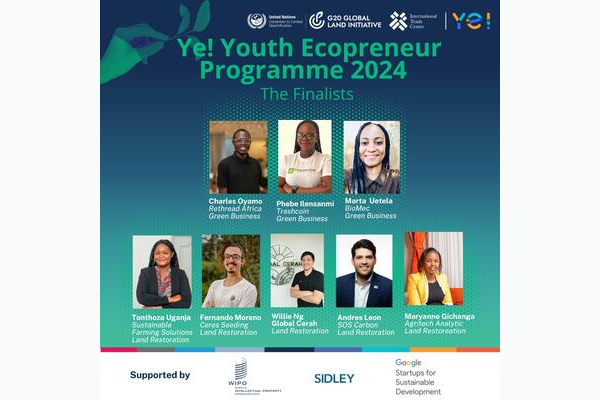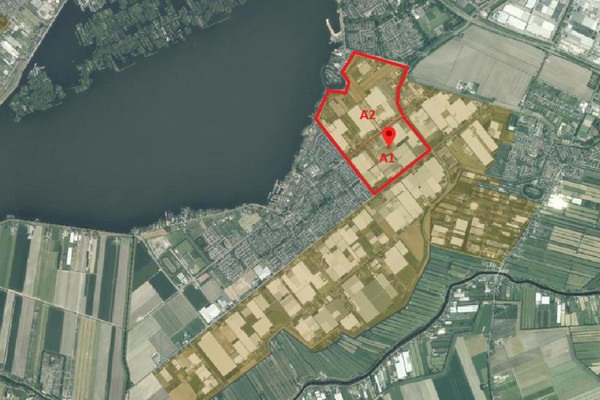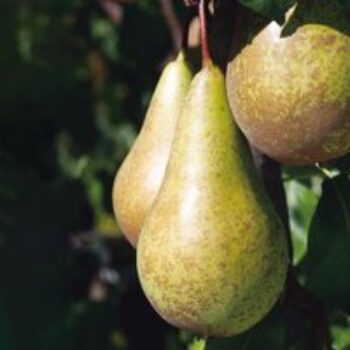With
a
playful
action
on
Brussels’
Martelaarsplein,
Boerenbond,
Groene
Kring
and
Ferm
for
agravrouwen
the
difficulties
they
encounter.
To
do
so,
they
use
the
board
game,
Game
of
the
Goose.
Negotiators
for
a
Flemish
government
were
called
upon
to
find
solutions
that
would
ensure
Flemish
farmers
and
horticulturists
could
take
steps
forward
again.
“What
a
depressing
game,”
sighed
one
of
the
participants.
Despite
the
limited
number
of
squares,
it
was
quite
difficult
to
reach
the
finish
line.
Jo
Brouns
(cd&v),
Sammy
Mahdi
(cd&v)
and
Ben
Weyts
(N-VA)
played
the
game
along
with
a
number
of
farmers
and,
like
them,
faced
some
setbacks.
“Lack
of
emission-reducing
techniques:
switch
to
bio
not
possible.
Go
back
to
the
start.’
‘Unreliable
policy,
so
children
don’t
take
over
the
farm.
Unfortunately,
go
back
to
the
start.’
‘Fertile
land
sold
to
nature
association:
growing
not
possible.
Go
back
to
the
start.’
And
an
occasional
‘You
worked
hard.
Move
forward
3
steps.’

Always
back
to
square
one
A
playful
game
that
participants
took
in
with
good
laughter,
even
though
no
prizes
were
awarded.
“But
for
farmers,
the
obstacles
on
their
journey
are
not
a
game
but
a
reality,”
said
Farmers’
Union
president
Lode
Ceyssens.”
Meat
farmer
and
arable
farmer
Joris
Claeys
from
Lennik
(Flemish
Brabant)
confirmed:
“You
really
don’t
get
ahead
sometimes,
it’s
like
always
going
back
to
square
one.”
He
himself
already
lost
part
of
his
acreage
to
nature
objectives.
“You
hope
that
it
is
only
a
limited
part
of
your
acreage
because
if
it
is
too
big,
it
is
over.
The
location
of
your
farm
is
very
decisive
in
this
respect.”
A
realistic
framework
Joris
himself
hopes
that
the
negotiators
for
a
next
Flemish
government
will
work
towards
a
more
realistic
nitrogen
framework.
“The
current
framework
is
more
of
a
theoretical
model.
You
get
a
stamp
from
the
computer,
but
you
don’t
know
how
the
computer
calculates
and
whether
it
is
correct.
Especially
individuals
who
are
in
the
process
of
renewing
or
obtaining
a
permit,
are
affected.”
Priorities
Lode
Ceyssens
knows
all
too
well
the
lamentations
of
Joris
and
other
farmers
and
horticulturists.
He
was
happy
to
summarize
their
priorities
for
the
Flemish
negotiators.
“Provide
a
nitrogen
emission
model
that
gives
farmers
and
horticulturists
the
same
development
opportunities
as
other
sectors.
Create
a
legally
secure
permit
framework
with
agricultural
land
protected
for
food
production.
And
avoid
administrative
regulatory
burdens
and
calendar
farming.”
Source:
Boerenbond



